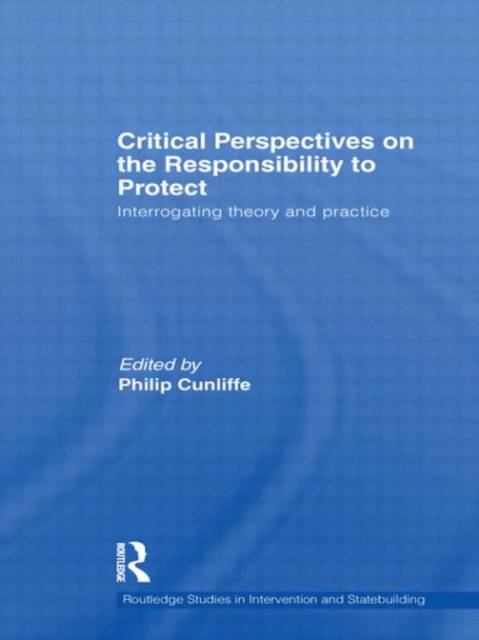
- Retrait gratuit dans votre magasin Club
- 7.000.000 titres dans notre catalogue
- Payer en toute sécurité
- Toujours un magasin près de chez vous
- Retrait gratuit dans votre magasin Club
- 7.000.0000 titres dans notre catalogue
- Payer en toute sécurité
- Toujours un magasin près de chez vous
Critical Perspectives on the Responsibility to Protect
Interrogating Theory and Practice
Description
This edited volume critically examines the widely supported doctrine of the 'Responsibility to Protect', and investigates the claim that it embodies progressive values in international politics.
Since the United Nations World Summit of 2005, a remarkable consensus has emerged in support of the doctrine of the 'responsibility to protect' (R2P) - the idea that states and the international community bear a joint duty to protect peoples around the world from mass atrocities. While there has been plenty of discussion over how this doctrine can best be implemented, there has been no systematic criticism of the principles underlying R2P. This volume is the first critically to interrogate both the theoretical principles and the policy consequences of this doctrine.
The authors in this collection argue that the doctrine of R2P does not in fact embody progressive values, and they explore the possibility that the R2P may undermine political accountability within states and international peace between them. This volume not only advances a novel set of arguments, but will also spur debate by offering views that are seldom heard in discussions of R2P. The aim of the volume is to bring a range of criticisms to bear from a variety of disciplinary perspectives, including international law, political science, IR theory and security studies.
This book will be of much interest to students of the Responsibility to Protect, humanitarian intervention, human security, critical security studies and IR in general.
Spécifications
Parties prenantes
- Editeur:
Contenu
- Nombre de pages :
- 160
- Langue:
- Anglais
- Collection :
Caractéristiques
- EAN:
- 9780415832304
- Date de parution :
- 07-12-12
- Format:
- Livre broché
- Format numérique:
- Trade paperback (VS)
- Dimensions :
- 156 mm x 234 mm
- Poids :
- 235 g

Les avis
Nous publions uniquement les avis qui respectent les conditions requises. Consultez nos conditions pour les avis.





